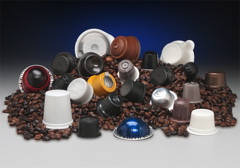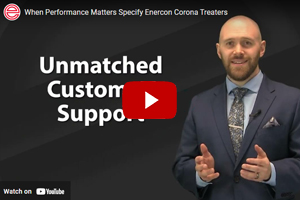Plastic Technologies Issues Study on Coffee Capsules
- Published: January 27, 2016
HOLLAND, OH | A new research study conducted by Plastic Technologies Inc. (PTI) has uncovered significant performance and barrier differences in capsules used for coffee and other applications. PTI is a source for preform and package design, package development, rapid prototyping, pre-production prototyping, and material evaluation engineering for the plastic packaging industry. 
The company found that that the Barrier Improvement Factor varied as much as 380 times across the 18 capsule samples tested. The capsules selected represent most of the major commercially available systems currently available
PTI reports that, with growing consumer use of capsules and pods for a wide number of beverage and other liquid-based applications, the company wanted to research the base materials being used, the structures they were assembled into, the resulting barrier (oxygen, water vapor transmission rates) attributes, and the impact on taste to produce comprehensive analysis on the package type.
“It’s important to understand, however, that just because a capsule type has a lower barrier, this doesn’t necessarily translate to bad taste,” says Thierry Fabozzi, managing director of PTI’s European business unit. “It really comes down to preference, oftentimes determined by specific cultures or geographic areas. Climatic storage conditions may also decrease barrier levels. But what is important is an understanding of how each performs to make sure that target audience criteria are being met in the most cost-effective way possible.”
PTI says the other significant finding from the research is that the way in which the capsule’s individual structural components are assembled to create the final container also impacts barrier characteristics.
The study, which included samples from many brands, reviewed a number of characteristics for each coffee capsule type, including oxygen and water vapor permeation, overall dimensions, minimum wall thickness, 3D scan to determine active barrier surface, identifying the manufacturing process, layer-structure analysis and summary mapping.
This email address is being protected from spambots. You need JavaScript enabled to view it.





